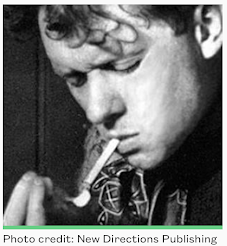Sunday, November 21, 2021
Don’t You Dare Go Gentle
Sunday, September 5, 2021
Jabber Mania
Saturday, June 6, 2020
Rodney Commands Respect
An unmistakable persona, usually decked out in a black suit and red tie, bug-eyed and innocuously tugging at his collar and wiping sweat from his face with his handkerchief, Rodney is still remembered today by most over the age of 30. His universally endearing “no respect” trademark led Johnny Carson to once declare him the greatest stand-up comic of all.
Born Jacob Cohen, the Long Island native began as a struggling stand-up performer with the stage name Jack Roy. After failing to find his niche, he notoriously left show business to sell aluminum siding. When he decided to take a second shot at stand-up, the rechristened Rodney Dangerfield worked his way through venues such as those in the famed Catskills.Eventually earning headliner status, he developed a memorable act based around an endless string of catchy one-liners that defined his self-deprecating image as the ultimate loser who won’t ever get a break (“My father carries around the picture of the kid who came with his wallet”). By 1969, he had opened Dangerfield’s, a first-class comedy club in Manhattan that still features top-rate comedy talent to this day.
In the 1980s, Rodney became an iconic household name thanks to a series of best-selling records and a starring role in the hit comedy film Caddyshack as the brash, no-class cut-up Al Czervik who traveled with an Asian chauffeur named Wang who found everything to be photogenic. “Hey Wang, what’s with the pictures? It’s a parking lot!”More movies and TV specials followed as well as a series of appearances in an all-star TV ad campaign for Miller Lite beer (he was even bestowed with the honor of having his own board game).

Milton Bradley's Rodney board game
Today’s contemporary comedy scene lacks the common range that legends like Rodney worked in. Most new comics seek to craft material relatable to like-minded pockets or groups with whom they can establish themselves as spokesmen or figureheads of irreverence. The days of instantly recognizable comedians with easily identifiable gimmicks cracking jokes that everyone gets, regardless of age, race, occupation or social class seem to be relegated to showbiz past.
Rodney was always destined for stardom because he possessed the key to laughter with a style that was empathetic, whoever you happened to be.Do you ever feel like you don’t get any respect? What about groups, communities and countries? Can they feel that way, collectively? Does America feel the way Rodney did? If so, can humor save it? Maybe Rodney had the answer. Many of us are undoubtedly invoking him without ever knowing it. How often do we seem to look around and say to ourselves in exasperation, “I tell ya, I can’t take it no more.”?
Chris













